Find Help
More Items From Ergsy search
-
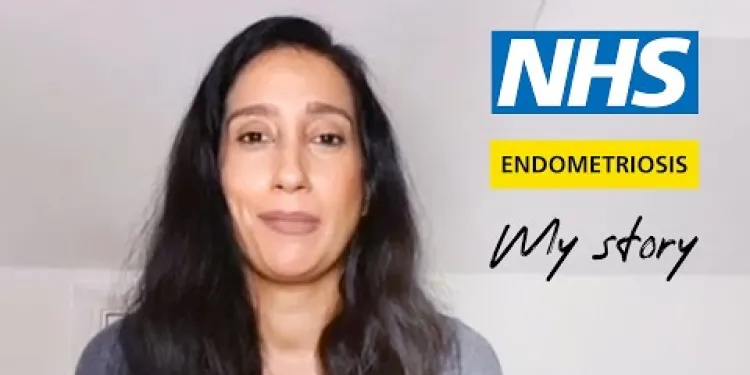
Endometriosis - My Story | NHS
Relevance: 100%
-
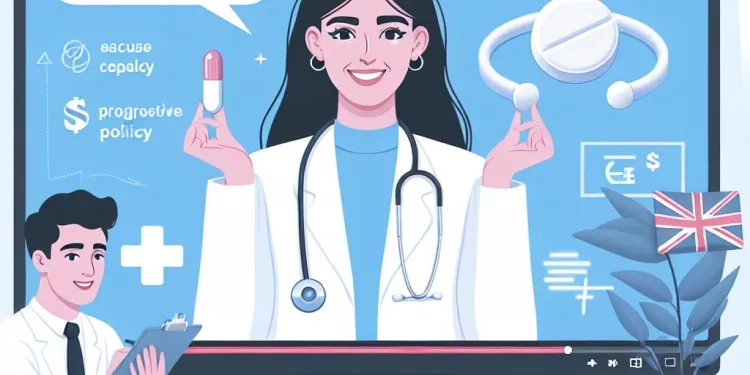
New endometriosis pill approved on NHS in England
Relevance: 86%
-
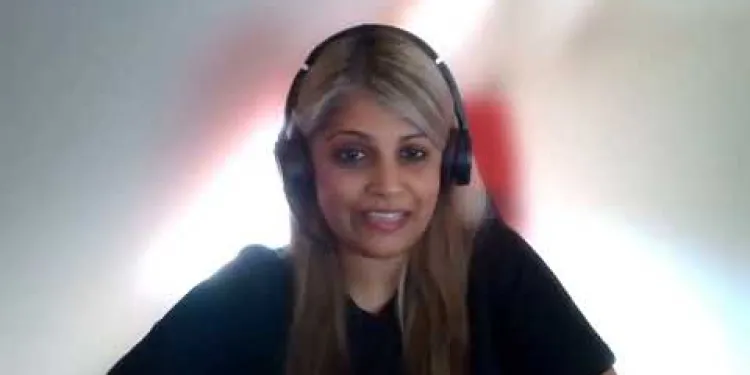
Uncomfortable Conversations — Niti Patel on endometriosis | NHS Digital
Relevance: 86%
-

Female infertility explained
Relevance: 33%
-
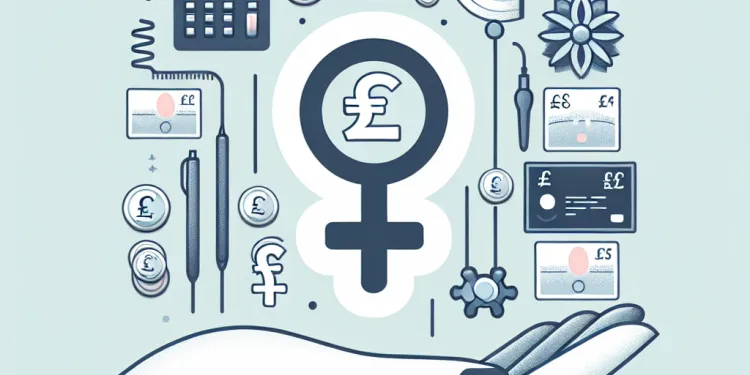
What are the reasons for female infertility?
Relevance: 32%
-
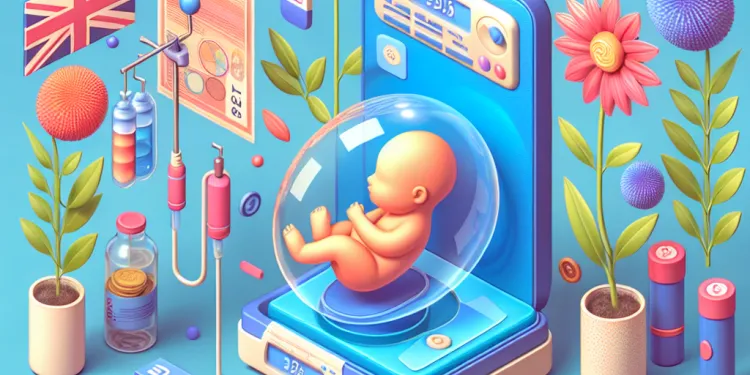
Who might need IVF?
Relevance: 26%
-
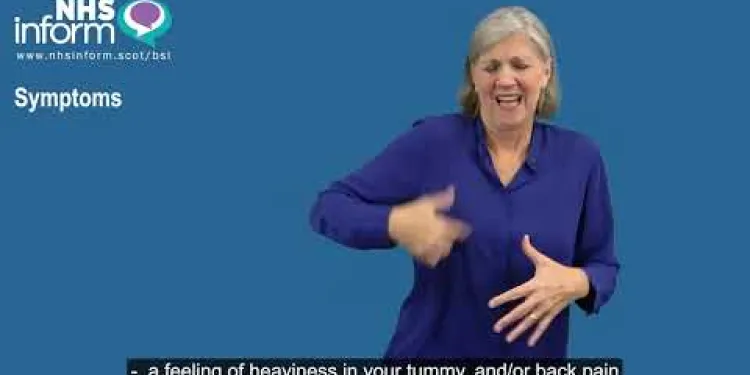
Period pain (dysmenorrhoea) - BSL
Relevance: 21%
-
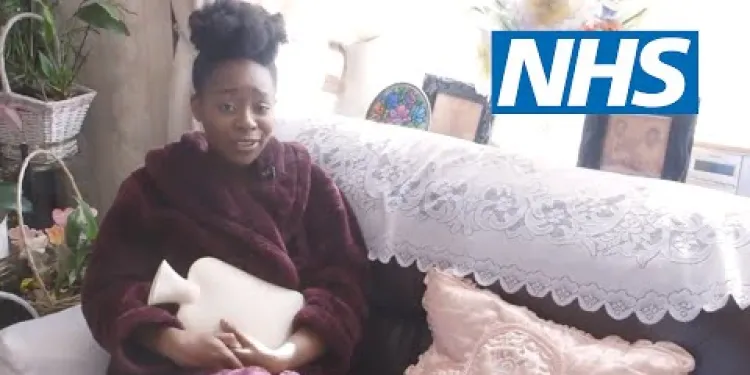
How to deal with period pain | NHS
Relevance: 18%
-
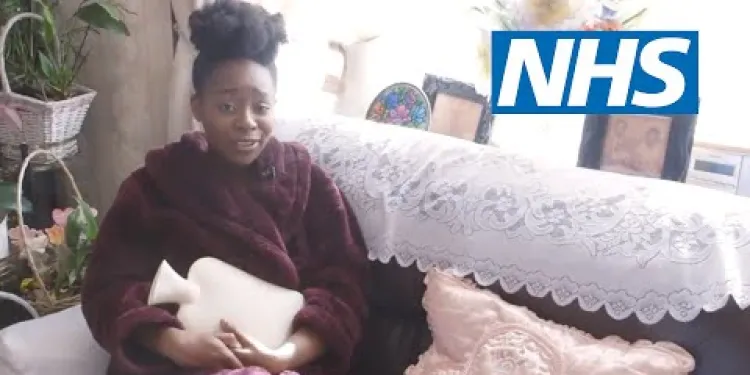
How to deal with period pain | NHS
Relevance: 18%
-
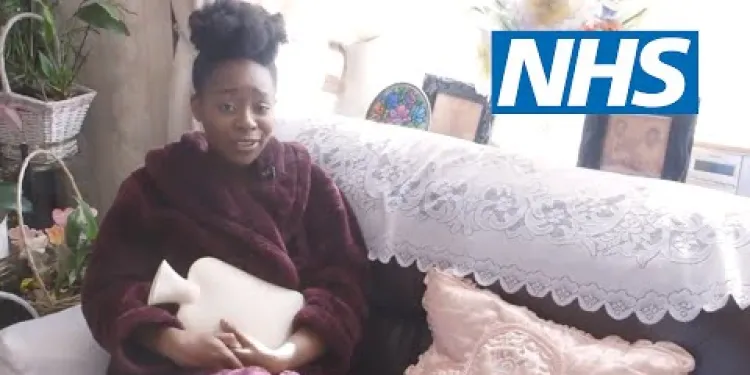
How to deal with period pain | NHS
Relevance: 18%
-

Does IVF guarantee pregnancy?
Relevance: 18%
-
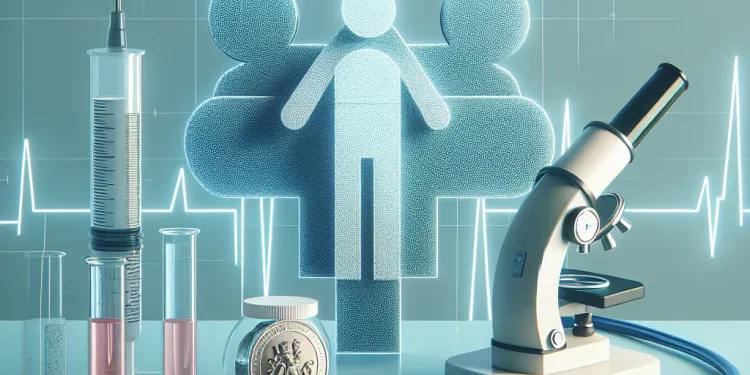
How do clinics determine if IVF is the right option?
Relevance: 18%
-
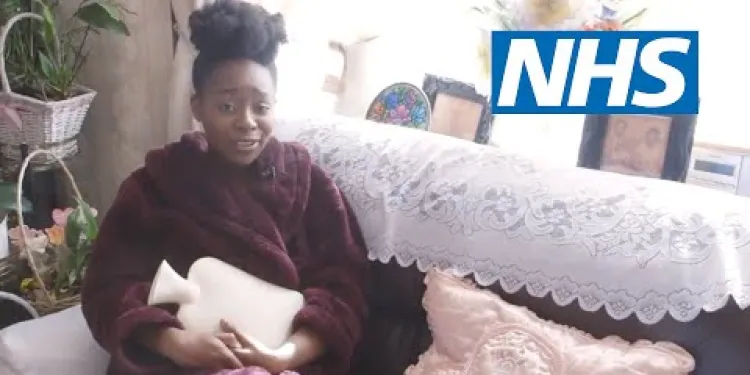
How to deal with period pain | NHS
Relevance: 18%
-
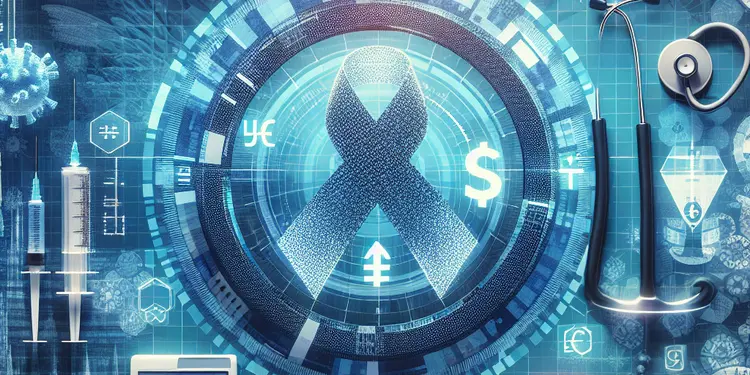
What is a CA-125 test?
Relevance: 18%
-
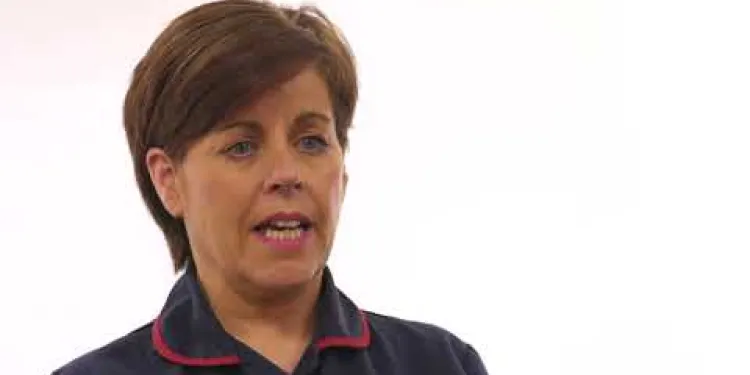
Ovarian Cancer
Relevance: 14%
-
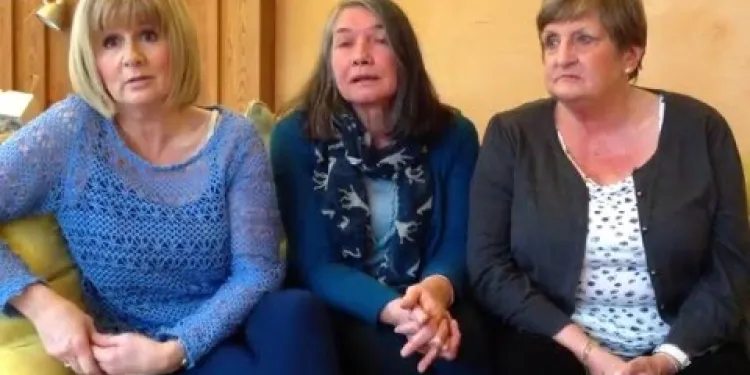
Raising awareness of ovarian cancer
Relevance: 12%
-

Can I use Ibuprofen for menstrual pain?
Relevance: 12%
-
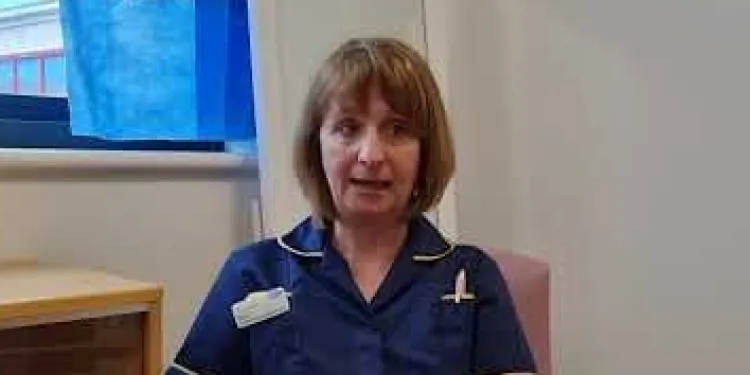
Ovarian cancer - signs and symptoms to look out for
Relevance: 6%
-
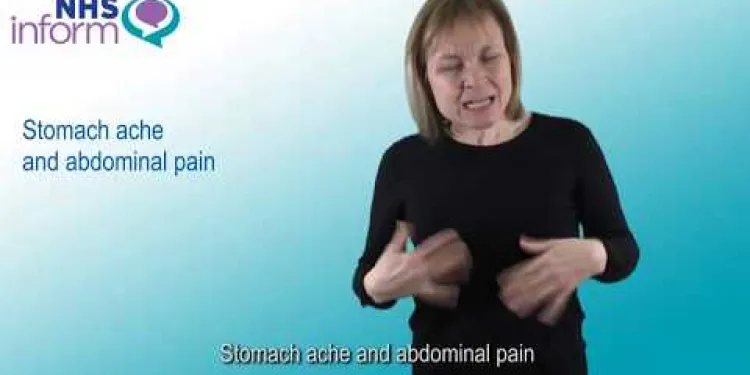
Stomach ache and abdominal pain
Relevance: 6%
-
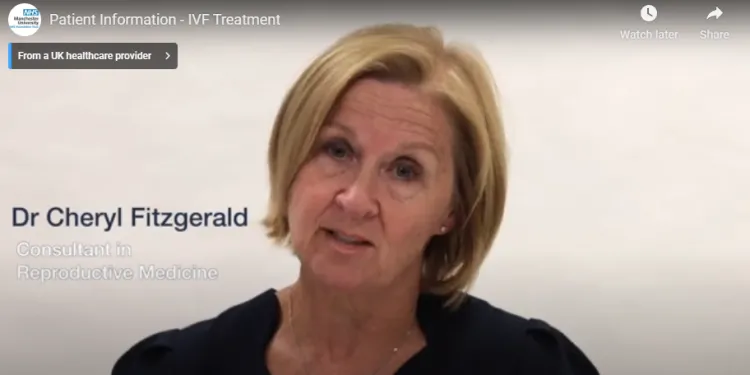
Infertility - IVF Treatment and Patient Information
Relevance: 6%
-

How does IVF work?
Relevance: 6%
Endometriosis - My Story | NHS
Introduction to Endometriosis
Endometriosis is a chronic condition that affects approximately 1 in 10 women of reproductive age in the United Kingdom. It occurs when tissue similar to the lining of the womb (endometrium) starts to grow outside the womb in other parts of the body, such as the ovaries, fallopian tubes, and pelvic lining. This can lead to a range of symptoms including severe pelvic pain, heavy periods, and infertility.My Journey with Diagnosis
Like many women, my journey to an endometriosis diagnosis was long and difficult. I first started experiencing symptoms during my teenage years, but they were often dismissed as just 'bad periods'. After several years of debilitating pain, numerous doctor visits, and a lot of frustration, I was finally referred to a gynaecologist who took my symptoms seriously. A diagnostic laparoscopy confirmed that I had moderate to severe endometriosis. The confirmation of my condition was both a relief and a cause for more concern, knowing the road ahead might be challenging.Treatment Options
The NHS provides several treatment options for endometriosis, depending on the severity of the condition and individual circumstances. My treatment began with pain relief management, including NSAIDs and hormonal treatments to attempt to manage the symptoms. For some, these options are enough; however, my symptoms were persistent, and I eventually had to explore surgical options. Laparoscopic surgery helped remove some of the endometrial tissue, providing significant relief and improving my quality of life.Living with Endometriosis
Living with endometriosis is a continual process of managing symptoms and maintaining open communication with healthcare professionals. The NHS has been instrumental in providing access to specialists and ongoing support. I have learned to advocate for myself, listen to my body, and make informed decisions about my healthcare. Support groups and online forums have also been a source of comfort, offering community and shared experiences.Final Words
Endometriosis is a complex condition that affects thousands of women in the UK. Raising awareness and improving access to timely diagnosis and appropriate treatment are crucial. The NHS continues to play a vital role in offering support and treatment options. My story is just one among many, but it highlights the importance of persistence, self-advocacy, and the invaluable support provided by healthcare professionals. If you suspect you have endometriosis, reach out to your GP and insist on the care you need and deserve.Endometriosis - My Story | NHS
What is Endometriosis?
Endometriosis is an illness that affects many women. About 1 in 10 women in the UK have it. It happens when tissue like the inside of the womb grows outside the womb. This can grow on the ovaries, fallopian tubes, and other parts of the body. It can cause bad pain, heavy periods, and can make it hard to have a baby.My Diagnosis
Getting told I had endometriosis took a long time. My pain started when I was a teenager. Doctors often said it was just 'bad periods'. After many years of pain and lots of doctor visits, I finally saw a specialist who listened. A special test called a laparoscopy showed I had endometriosis. Knowing the problem was a relief, but I was also worried about my future.Treatment
The NHS has different treatments for endometriosis. It depends on how bad it is and each person’s situation. First, I tried medicine for pain and hormones to help the symptoms. For some women, this is enough. But for me, it was not. I had to think about surgery. Laparoscopic surgery helped by taking away some of the tissue. This made me feel a lot better.Living with Endometriosis
Living with endometriosis means always managing symptoms and talking to doctors. The NHS helped me see specialists and get support. I learned to speak up for myself and listen to my body. Support from groups and online forums also helped me a lot.Final Thoughts
Endometriosis affects many women in the UK. It is important to talk about it and get the right help. The NHS provides great support and treatment. My story shows how important it is to keep going and speak up for yourself. If you think you might have endometriosis, talk to your doctor and ask for the help you need.Frequently Asked Questions
What is endometriosis?
Endometriosis is a condition where cells similar to the ones in the lining of the womb are found elsewhere in the body, causing pain and other symptoms.
What are the common symptoms of endometriosis?
Common symptoms include pelvic pain, painful periods, pain during or after sex, painful bowel movements, fatigue, and difficulty getting pregnant.
How is endometriosis diagnosed?
Endometriosis is typically diagnosed through a combination of patient history, pelvic exams, imaging tests such as ultrasounds, and sometimes a laparoscopy.
What causes endometriosis?
The exact cause of endometriosis is unknown, but possible factors include genetics, retrograde menstruation, immune system disorders, and hormonal influences.
How common is endometriosis?
Endometriosis affects roughly 1 in 10 women of reproductive age in the UK.
Can endometriosis affect fertility?
Yes, endometriosis can sometimes cause fertility problems. It is one of the leading causes of infertility in women.
Is there a cure for endometriosis?
There is currently no cure for endometriosis, but there are treatments available to manage the symptoms.
What treatments are available for endometriosis?
Treatments include pain relief medications, hormone therapy, and surgery. Lifestyle changes and complementary therapies may also help manage symptoms.
How can I manage the pain associated with endometriosis?
Pain management can include over-the-counter pain relievers, prescription medications, hormone therapy, physical therapy, and alternative therapies like acupuncture.
Does diet affect endometriosis?
While no specific diet is proven to cure endometriosis, some women find that certain foods may improve or worsen their symptoms. Maintaining a healthy diet can help overall well-being.
Can endometriosis recur after treatment?
Yes, endometriosis can recur after treatment. Regular follow-up with your healthcare provider is important to monitor and manage symptoms.
Is endometriosis cancerous?
No, endometriosis is not cancerous. However, it can cause significant pain and complications.
Can endometriosis be prevented?
There is no known way to prevent endometriosis, but early diagnosis and treatment can help manage symptoms and improve quality of life.
Can men get endometriosis?
Endometriosis primarily affects women of reproductive age. It is extremely rare, but there have been a few cases reported in men.
Where can I find support if I have endometriosis?
There are several support groups and organizations in the UK, such as Endometriosis UK, that offer resources, support, and information for those affected by endometriosis.
What is endometriosis?
Endometriosis is when tissue, like the lining inside the uterus, grows outside the uterus. It can cause pain.
If you have endometriosis, you might feel pain in your tummy, especially during your period.
Doctors can help. You can talk to an adult you trust if you have tummy pain.
Using a calendar to track pain can help. Drawing or writing about how you feel can also help you explain it to others.
Endometriosis is a health problem. It happens when cells like the ones inside a womb grow in other parts of the body. This can cause pain and other problems.
If you find this hard to remember, try using pictures or simple notes to help you understand.
It's okay to ask a friend or adult to explain it to you in a way that makes sense to you.
What signs show someone might have endometriosis?
Endometriosis can make people feel unwell. These are some signs that can help you know if someone might have it. If you have these signs, it is a good idea to talk to a doctor:
- Pain: You might feel pain in your tummy or lower back.
- Periods: Your periods might hurt a lot or be very heavy.
- Tummy Trouble: You might feel sick in your tummy, like needing to go to the toilet a lot or feeling bloated.
- Tiredness: You might feel really tired even when you have slept well.
Tools and Tips to Help:
- Doctor: Talk to a doctor about how you are feeling.
- Write it Down: Keep a diary of your pain and periods to show the doctor.
- Support: Talk to friends or family who can support you.
Here are some signs to look out for:
- Pain in the lower belly.
- Painful periods.
- Hurt during or after sex.
- Pain when going to the toilet.
- Feeling very tired a lot.
- Finding it hard to have a baby.
You can speak to a doctor about these signs. It might help to write down when you feel these pains.
How do doctors find out if someone has endometriosis?
Doctors find out if someone has endometriosis by doing a few things. They ask questions about how the person feels, check the tummy area, use special pictures like an ultrasound, and sometimes do a small operation called a laparoscopy.
What causes endometriosis?
Why do people get endometriosis?
Endometriosis means having tissue like the lining inside the womb in other places, like the tummy. Here’s why it might happen:
- The tissue from the womb might travel to other places.
- The body might react extra strongly to the tissue.
- It might run in the family, so if a parent has it, the child might too.
Doctors don’t know exactly why endometriosis happens. Using pictures or videos about endometriosis can help you understand better. Talk with a doctor if you have more questions.
No one knows exactly what causes endometriosis. But it might be because of:
- Family history (genes passed down from parents)
- Periods flowing backwards into the body
- Problems with the body's defense system (immune system)
- Changes in body hormones
To understand more about endometriosis, you can:
- Talk to a doctor or nurse
- Read easy guides about health
- Watch simple videos that explain health problems
How often do people get endometriosis?
About 1 out of every 10 women in the UK who can have babies has a condition called endometriosis.
Can endometriosis make it hard to have a baby?
Yes, endometriosis can sometimes make it harder for women to have babies. It is one of the main reasons why some women can't get pregnant.
Can endometriosis be made better?
No, there is no cure for endometriosis. But, there are ways to help feel better.
Here are some things that can help:
- Medicine to stop pain.
- Talking to a doctor about treatments.
- Eating healthy food and exercising.
It is good to talk to people who understand, like family, friends, or groups for support.
There is no cure for endometriosis right now. But, there are ways to help with the symptoms.
What treatments can help if you have endometriosis?
You can feel better in different ways:
- Take medicine to stop the pain.
- Try hormone treatments.
- Have surgery if needed.
You can also try other things:
- Change how you live, like eating better or exercising.
- Try different therapies, like talking to someone who can help.
Tools that can help:
- Use a reminder app to take your medicine on time.
- Keep a diary to track how you feel and what you do.
How can I feel better if endometriosis hurts?
Endometriosis can cause pain. Here are some ways to feel better:
- Medicine: Ask a doctor about pills that can help with pain.
- Heat: Use a warm towel or heating pad on your belly.
- Rest: Take breaks and relax when you need to.
- Talk: Share how you feel with friends or family.
- Exercise: Gentle exercise, like walking, can help.
Talk to a doctor for more ideas. You are not alone, and there are people who can help.
To help with pain, you can use simple pain pills from the shop, special medicine from the doctor, and hormones. You can also do exercises with a physical therapist or try things like acupuncture.
Does what you eat change endometriosis?
Endometriosis is when tissue like the lining inside the uterus grows outside it. This can cause pain. People wonder if food can make endometriosis better or worse. Eating healthy food like fruits, vegetables, and whole grains might help some people feel better. Some people say that less red meat, sugar, and processed foods can help too.
If you have endometriosis and want to try changing your diet, you can talk to a doctor. They can help you find the right foods to eat. Keeping a food diary can also show you which foods feel good or bad for your body.
There is no special food that cures endometriosis. But some women feel better or worse with different foods. Eating healthy is good for feeling well.
Can Endometriosis Come Back After Treatment?
Yes, endometriosis can come back after it has been treated.
Here are some tips to help understand this:
- Endometriosis is a condition where tissue like the lining inside the uterus grows outside of it.
- Treatment can help with pain and other symptoms, but it may not be a permanent fix.
- Talk to your doctor about ways to manage symptoms if endometriosis comes back.
- Using tools like pictures, videos, or audio can help explain more about this condition.
Remember, it is okay to ask for help to understand this better.
Yes, endometriosis can come back after treatment. It is important to see your doctor regularly to check and help with any symptoms.
Can endometriosis cause cancer?
No, endometriosis is not cancer. But it can cause a lot of pain and problems.
Can we stop endometriosis from happening?
Endometriosis is when tissue grows in the wrong place inside the body.
Doctors do not know for sure how to stop endometriosis.
Here are some ideas that might help:
- Talk to your doctor about ways to keep your hormones balanced.
- Consider exercise and healthy eating.
- Ask about medicine that can lower estrogen levels.
Always ask your doctor for advice. They can help you understand more.
There is no way to stop endometriosis from happening. But finding it early and seeing a doctor can help make you feel better and improve your life.
Can men have endometriosis?
No, men do not get endometriosis. Endometriosis is a condition that only affects people who have a uterus. Boys and men do not have a uterus, so they cannot have endometriosis.
If you have questions, you can ask a doctor or nurse. They can help you understand more about endometriosis.
It might help to use pictures or talk to someone you trust to learn more.
Endometriosis mostly affects women who can have babies. It is very rare, but a few men have had it too.
Where can I get help for endometriosis?
If you have endometriosis, you can get help from:
- Doctors: Talk to your doctor. They can give you advice and treatment.
- Support Groups: Join a support group to meet others with endometriosis. You can share stories and tips.
- Online Resources: Look for websites about endometriosis. They have information that can help you understand more.
It's important to talk to people who can help you feel better.
In the UK, there are places that can help if you have endometriosis. One group is called Endometriosis UK. They give support, information, and help to people with endometriosis.
Useful Links
This website offers general information and is not a substitute for professional advice.
Always seek guidance from qualified professionals.
If you have any medical concerns or need urgent help, contact a healthcare professional or emergency services immediately.
Some of this content was generated with AI assistance. We’ve done our best to keep it accurate, helpful, and human-friendly.
- Ergsy carfully checks the information in the videos we provide here.
- Videos shown by Youtube after a video has completed, have NOT been reviewed by ERGSY.
- To view, click the arrow in centre of video.
- Most of the videos you find here will have subtitles and/or closed captions available.
- You may need to turn these on, and choose your preferred language.
- Go to the video you'd like to watch.
- If closed captions (CC) are available, settings will be visible on the bottom right of the video player.
- To turn on Captions, click settings .
- To turn off Captions, click settings again.
More Items From Ergsy search
-

Endometriosis - My Story | NHS
Relevance: 100%
-

New endometriosis pill approved on NHS in England
Relevance: 86%
-

Uncomfortable Conversations — Niti Patel on endometriosis | NHS Digital
Relevance: 86%
-

Female infertility explained
Relevance: 33%
-

What are the reasons for female infertility?
Relevance: 32%
-

Who might need IVF?
Relevance: 26%
-

Period pain (dysmenorrhoea) - BSL
Relevance: 21%
-

How to deal with period pain | NHS
Relevance: 18%
-

How to deal with period pain | NHS
Relevance: 18%
-

How to deal with period pain | NHS
Relevance: 18%
-

Does IVF guarantee pregnancy?
Relevance: 18%
-

How do clinics determine if IVF is the right option?
Relevance: 18%
-

How to deal with period pain | NHS
Relevance: 18%
-

What is a CA-125 test?
Relevance: 18%
-

Ovarian Cancer
Relevance: 14%
-

Raising awareness of ovarian cancer
Relevance: 12%
-

Can I use Ibuprofen for menstrual pain?
Relevance: 12%
-

Ovarian cancer - signs and symptoms to look out for
Relevance: 6%
-

Stomach ache and abdominal pain
Relevance: 6%
-

Infertility - IVF Treatment and Patient Information
Relevance: 6%
-

How does IVF work?
Relevance: 6%


